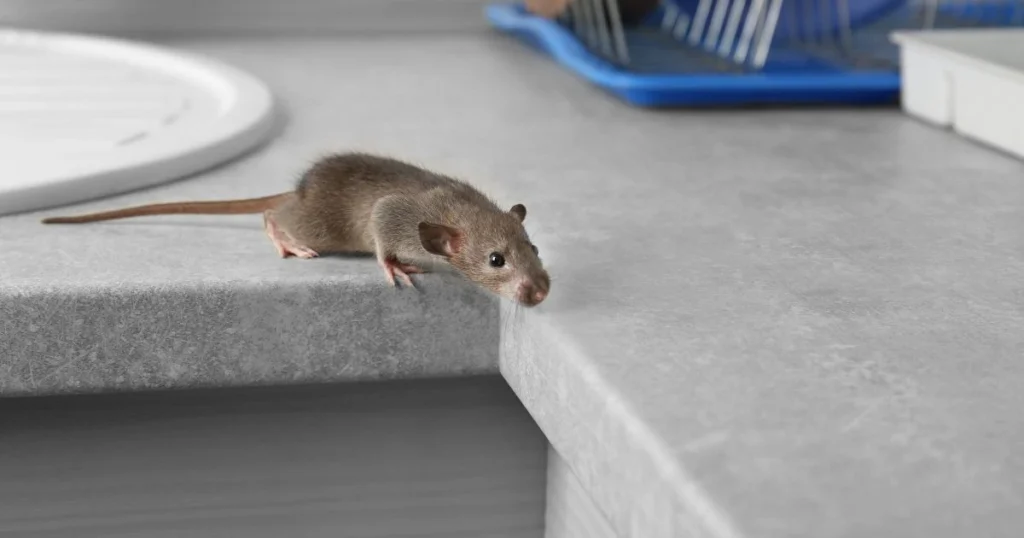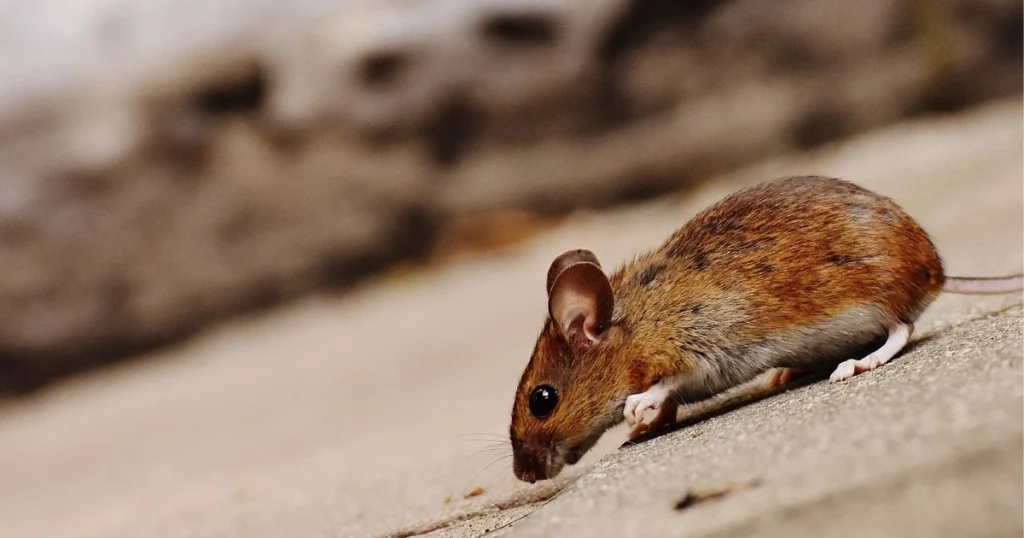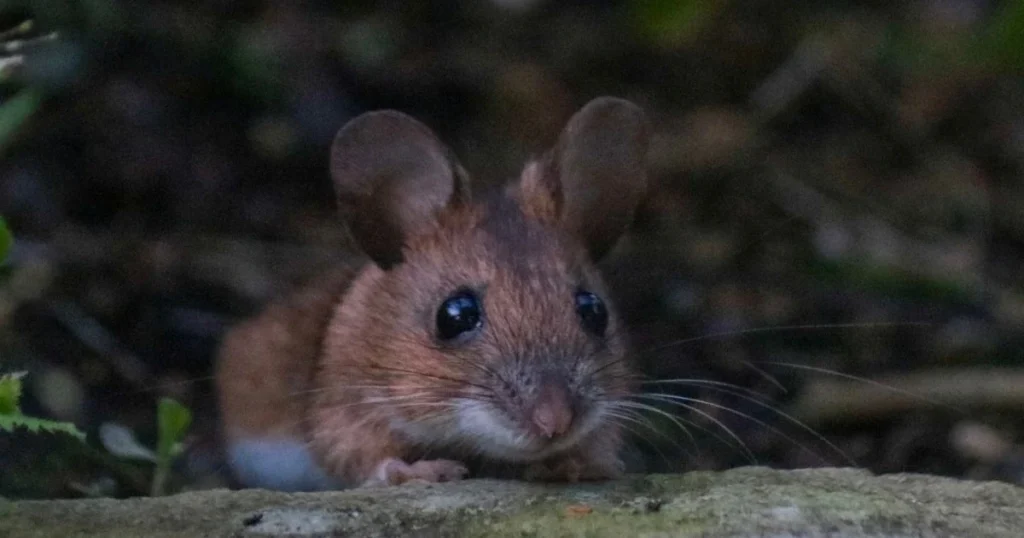
As winter approaches, many homeowners face the challenge of keeping unwanted guests out of their homes. Mice seek shelter from the cold, so proactive measures to prevent infestations are essential. Several effective strategies can be implemented to keep mice out of the house this winter.
Simple steps, such as sealing entry points, reducing clutter, and maintaining cleanliness in food storage, can significantly deter mice from entering a home. Inspecting and patching gaps around doors, windows, and foundations creates a barrier against entry. Also, food storage in airtight containers minimizes attractions that could draw mice indoors.
Using natural repellents and setting traps can further enhance these preventative measures. Understanding common mouse behavior and implementing these techniques will help ensure homes remain peaceful and pest-free during the colder months.

Mice are resourceful creatures that seek warmth and food during the winter months. Identifying their common entry points and understanding their behavior can help prevent infestations.
Mice can enter homes through various openings, often unnoticed. Key entry points include:
Regular inspections can help determine where mice are entering. A detailed check during the fall is crucial before winter sets in.
During winter, mice actively search for warmer environments and food. Their behaviors include:
Observing unusual noises or droppings can help determine where mice are coming in, and regular monitoring is essential to deter these pests.

Effective prevention is essential for keeping mice out of the home during winter. Focus on securing entry points, maintaining cleanliness, and using proper storage methods.
To keep mice out, it’s critical to identify and seal any potential entry points. Mice can squeeze through openings as small as a dime. Inspect the exterior for cracks in the foundation, gaps around windows, and holes in the siding. Use steel wool, caulk, or expanding foam to seal these gaps.
Pay special attention to areas near pipes, vents, and electrical outlets. Installing door sweeps can help cover gaps beneath doors. Regular inspections of these areas help significantly reduce late fall and winter mouse invasions.
Maintaining a clean environment is vital in deterring mice. Clutter offers hiding places and nesting materials. Keeping living areas tidy makes it easier to spot signs of mice.
Kitchen cleanliness is especially important to prevent mice from accessing food. Wipe down countertops, sweep floors, and store food in sturdy, airtight containers. Ensure that trash cans have tight-fitting lids and are emptied regularly.
Keeping storage areas organized can also prevent rodents from creating a welcoming environment. Regularly decluttering and cleaning can help eliminate potential nesting sites.
Food storage is crucial in protecting against mice. Use hard plastic or glass containers with tight seals to deter access. Avoid using cardboard boxes, as they attract mice looking for nesting materials.
For personal belongings, consider metal storage bins instead of cardboard. This greatly reduces the risk of mice infesting items and creating damage. Ensure items are stored off the ground and in rodent-proof containers in crawl spaces.
Check stored items regularly for signs of mice, such as droppings or gnaw marks. Implementing secure storage solutions makes it easier to maintain a mouse-free environment throughout the winter months.

Implementing effective strategies in kitchens and pantries is essential for keeping mice at bay during winter. Targeted approaches can help secure food sources and deter rodents from nesting in these areas.
Start cleaning thoroughly to keep mice out of kitchen drawers and cabinets. Food crumbs and spills attract rodents. It is vital to use sealed containers for all food items, especially grains and snacks. Glass or metal containers are preferable, as they are more difficult for mice to chew through.
Inspect all drawers and cabinets for gaps or holes. Seal them with silicone caulk or steel wool. Regularly check these areas for signs of activity, such as droppings or gnaw marks. Adding mouse traps in discreet locations can effectively monitor and control potential infestations.
Proper organization is essential to safeguard pantry items from rodents. Store all food in airtight containers to eliminate access. Labeling items helps track what is stored, ensuring nothing is left open.
Review pantry contents regularly for old or expired products. Dispose of any waste promptly, as it can attract mice. Maintain a clean pantry environment by wiping shelves and removing crumbs. Additionally, consider using scent deterrents like peppermint or cinnamon, which may discourage mice from entering.

Taking specific precautions during winter can help prevent mice from invading vehicles and storage areas. These environments can often provide shelter if not properly maintained.
To keep mice out of a camper during winter storage, ensure it is completely clean. Remove all food sources, including crumbs and packaging. Vacuum thoroughly and consider using sealing containers for any items left inside.
Inspect for gaps around doors, windows, and vents where mice may enter. Seal these openings with weather stripping or foam insulation.
Additionally, placing mouse repellents inside the camper, such as peppermint oil-soaked cotton balls, can deter rodent activity. It is wise to regularly check on the camper throughout winter for any signs of mice or intrusion.
Organization is key when storing items in units or boxes. Elevate boxes off the floor using pallets or shelving to reduce access points for mice.
Use airtight plastic containers instead of cardboard boxes, as mice can easily chew through cardboard. Label containers clearly to avoid unnecessary movement, which can disturb potential nests.
Regularly inspect storage units for signs of mice, such as droppings or gnaw marks. As a proactive measure, use mouse traps or natural deterrents within storage areas.
Creating a less inviting environment for mice will help keep storage areas pest-free throughout winter.

Taking proactive measures to protect pet food and handle pest incidents is crucial during winter. Proper storage and quick responses can significantly reduce the chances of mice infestations in a home.
To keep mice away from dog food, it's essential to use airtight containers. These containers should be made from durable materials like plastic or metal. Storing dog food in these containers prevents odors from escaping and deters mice from entering.
Placing the food containers in hard-to-reach areas, such as high shelves or inside cabinets, adds an extra layer of protection. Regularly inspecting the storage areas for any signs of mice or droppings allows for early detection. It’s advisable to clean the feeding area frequently to remove any fallen kibble, as this can attract mice.
If mice are suspected in air ducts, addressing the issue promptly is essential to prevent further damage and health risks. Start by sealing any visible entry points using caulk or heavy-duty materials to close gaps around ducts, vents, and walls. This will help block access to potential nesting areas. Setting traps near vents can effectively capture any mice that venture into the ducts, but these traps must be monitored regularly to ensure success.
If a larger infestation is identified, contacting a professional pest control service is often the best action. Maintaining good ventilation and placing natural deterrents like peppermint oil or ultrasonic devices around the home can further discourage mice from settling in hidden spaces.
Critter Stop is a trusted and professional humane wildlife removal company that resolves issues like mice infestations in air ducts. Their experienced team ensures safe, effective, and ethical solutions to keep your property pest-free.
Call Critter Stop at (214) 234-2616 for a free inspection today. Critter Stop’s fantastic reputation and glowing customer reviews highlight its commitment to high-quality work and exceptional customer service. Don’t wait—take control of your home and enjoy peace of mind!

This section addresses common questions regarding preventing mice from entering homes during winter. Specific strategies, effective techniques, and preventive measures will be outlined for various areas of the home.
To deter mice, homeowners should seal cracks and gaps around doors and windows. Installing door sweeps and using weather stripping can block potential entry points. Regular inspection of the exterior is crucial to maintain a mouse-free environment.
It is essential to keep kitchen drawers clean and free of food debris. Use airtight containers for food storage and regularly check for signs of pests. Employing natural deterrents like peppermint oil can also help keep mice at bay.
Sealing gaps and using traps or natural repellents, such as essential oils, can keep mice away from cabinets. Regular cleaning and decluttering are also important to reduce attractants that entice rodents.
Covering vents and sealing all potential entry points are vital for protecting a camper from mice. Using rodent repellents or natural deterrents inside can also help. Regular inspections during storage can catch issues early.
Storing pet food in sealed containers can prevent rodents from being attracted to it. Keeping feeding areas clean and promptly removing any spills is also necessary. Regularly checking for signs of mice can help maintain a safe environment for pets.
Using airtight containers for all pantry items prevents access to food. Regular cleaning and ensuring no food debris is left behind are important steps. Inspecting shelves for gaps and sealing them will further reduce the risk of mice.
Sealing vents and gaps in foundation walls is crucial for keeping mice out of crawl spaces. Regular inspections can identify new entry points, and installing barriers can also provide additional protection against rodents.
A thorough inspection of the home’s exterior can reveal potential entry points. Look for gaps around pipes, vents, and other surfaces. Once identified, these openings should be sealed with appropriate materials.
Plastic storage bins with tight-fitting lids can keep mice out of your belongings. Storing boxes off the ground and in well-sealed areas adds an extra layer of protection. It is also advisable to regularly check stored items for signs of mice.
Noticing droppings or gnaw marks can indicate the presence of mice. Following these signs can help locate entry points. It is important to document these findings to address the source of the infestation effectively.
Using traps designed for air ducts can help catch mice without harming them. Regular cleaning of ducts and sealing any gaps can prevent future access. Consulting a professional for thorough inspections may be necessary.
It is critical to inspect and seal the camper for entry points regularly. Using rodent repellents in the camper during winter storage can deter mice. Ensuring that all food is removed can minimize attractants.
Keeping kitchens tidy and free of food debris helps deter mice. Repellents like peppermint oil can also be effective. Additionally, sealing any gaps around cabinets and appliances is key.
Older homes often have small gaps that can be sealed with caulk or expanding foam. Regular maintenance can help identify and seal these openings. Ensuring that cabinets are clean and food-free is crucial for prevention.
Visit our Critter Library and learn more about our furry friends